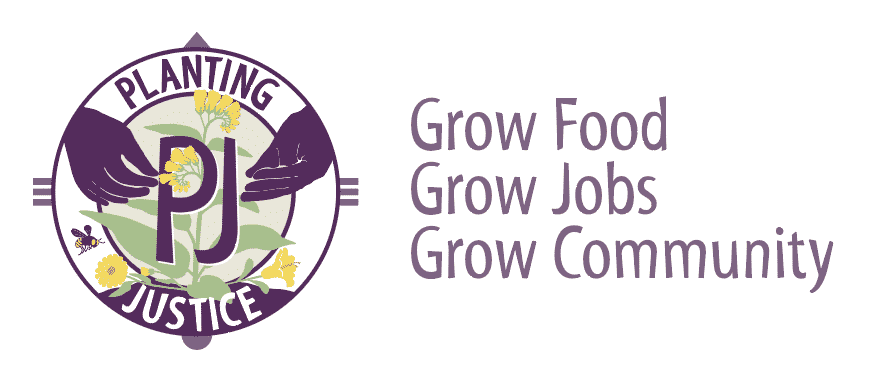
Making Vitamin Water from the Garden : Putting People Before Profits
In March 2004, the people of Plachimada in Kerala, India successfully shut down a $16 million Coca Cola bottling plant. The factory had arrived in 1999 and was found responsible for creating severe water shortages and polluting the groundwater and soil, destroying the livelihood of local farmers. As a demand for justice, the people of Plachimada set up a 24 hour dharna protest in front of the Coca Cola bottling plant for years until they successfully convinced officials to shut down the plant.
Halfway around the world, Planting Justice educators and students are finding their own way to boycott Coca Cola products—by creating nutritious and hydrating drinks in our own glass jars using what we harvest from the garden such as strawberries, cucumber, lemon, sage, mint or lavender and adding honey. Strawberries are an excellent source of vitamin C, antioxidants, and vitamin B complex which helps the body to metabolize carbohydrates, proteins, and fats. Lemons are packed with vitamin C which help to work against infections like the flu and colds. It is also very alkalizing to help restore balance to the body’s pH and to help neutralize free radicals linked to most types of diseases. The infusion of herbs such as lavender and sage enhance concentration, attention span, and quickens the senses, as well as helping to deal with grief and depression. Mint is especially beneficial for reducing high blood pressure and easing indigestion symptoms. Cilantro is a remedy for diabetes and is effective for toxic metal cleansing.
At schools such as McClymonds High in west Oakland and equal housing opportunity apartments such as Keller Plaza in north Oakland, Planting Justice leads students in this unique culinary, nutrition, and food justice workshop. Students receive their own glass jar with a lid to fill with water and add whatever fruits, veggies, and herbs they prefer from the garden. With sticker labels and pens, students design their own label to give a name to their vitamin water, listing the ingredients and describing the benefits of its vitamins and minerals. Throughout the workshop, we discuss a campaign for boycotting The Coca Cola Company.
Vitamin Water – the one manufactured and distributed by Glacéau, a privately owned subsidiary of Coca Cola – gives the illusion of a healthy, hydrating, and rejuvenating elixir. But with over 30 grams of sugar in one bottle, its definitely putting the health of our bodies at risk. A diet steadily high in fructose leads to diabetes and tooth decay and further curbs our brain’s memory and learning process. If we choose to not buy a Vitamin Water – or any other Coca Cola product such as Sprite, Dr. Pepper, Dasani, Evian, Inca Kola, Fanta, Minute Maid, Honest Tea, Odwalla, Zico, or Powerade – collectively we could save gazillions of dollars that are sucked out of our local community. There are plenty of reasons to boycott The Coca Cola Company: its drinks are known to have toxic health effects on the body; its bottling plants steal groundwater from local farmers in India; its toxic waste is dumped onto the land contributing to climate change; its been served and settled a class action lawsuit against racial discrimination in its workforce in the US; its union leaders have been found murdered in Guatemala and Colombia; its marketing schemes are exploitative and frankly false. Perhaps this practice of making our own vitamin water will joyously inspire a boycott of all Coca Cola products at our schools and in our neighborhoods.

0 Comments